Booking Through Thursday asks this week:
1. Favorite childhood book?
Wrinkle in Time by Madeleine L’Engle came to mind first.
2. What are you reading right now?
James Joyce’s Ulysses, Catherynne Valente’s Circumnavigated Fairyland, Ursula Le Guin’s Language of the Night, and Year’s Best Fantasy 3 from Eos Books.
3. What books do you have on request at the library?
None, I prefer buying books or borrowing from friends.
4. Bad book habit?
Can’t think of any.
5. What do you currently have checked out at the library?
Nothing.
6. Do you have an e-reader?
I occasionally use my palm pilot for old books available through Project Gutenberg. Much to my chagrin I left Mary Shelley’s Frankenstein at a friend’s so read all but seven chapters on my palm. I finished it the night before returning, go figure.
7. Do you prefer to read one book at a time, or several at once?
Several, I like having something for different mindsets.
8. Have your reading habits changed since starting a blog?
Nope.
9. Least favorite book you read this year (so far?)
Jules Verne’s Journey to the Center of the Earth was okay.
10. Favorite book you’ve read this year?
Hmm…either Steven Barnes’ Lion’s Blood, Michael Swanwick’s Iron Dragon’s Daughter, George Orwell’s Nineteen Eighty-Four. They’re really phenomenal and so different from each other.
11. How often do you read out of your comfort zone?
Rarely, I have a hard enough time reading everything I’d like in my zone.
12. What is your reading comfort zone?
Just about anything: classic lit, general and speculative fiction, nonfiction.
13. Can you read on the bus?
No, I get carsick. But I can read on an airplane or a boat no matter the conditions.
14. Favorite place to read?
On my bed, in my chair, or a friend’s backyard on the river.
15. What is your policy on book lending?
I trust those I’m lending to so don’t feel the need for one.
16. Do you ever dog-ear books?
Not since I was a kid.
17. Do you ever write in the margins of your books?
Sometimes, though mainly in play scripts.
18. Not even with text books?
Certainly, highlighting and penning in texts.
19. What is your favorite language to read in?
English.
20. What makes you love a book?
Compelling plot, the storytelling and writing, and character development.
21. What will inspire you to recommend a book?
The plot and writing and if I think a person will like something based on their tastes.
22. Favorite genre?
Speculative fiction. I could use a new bookshelf specifically for all the SF/F that’s currently double rowed and stacked.
23. Genre you rarely read (but wish you did?)
I don’t read as much classic literature as I used to, though I’ve been gorging on it this summer.
Favorite biography?
Maus I and II by Art Spiegelman about his father’s experiences during the Holocaust because it reflected those of my relatives and too many others. Read at 14, the graphic novels made a lasting impression.
25. Have you ever read a self-help book?
Yep.
26. Favorite cookbook?
The binder of recipes I’ve compiled through the years. It started as a copy of my mom’s collection and grew from there.
27. Most inspirational book you’ve read this year (fiction or non-fiction)?
The alternate history Lion’s Blood by Steven Barnes for which I still need to do a proper post. It’s spiritual, emotional, psychological, insightful, moving, better the second time around, a long time favourite, and then some.
28. Favorite reading snack?
I occasionally treat myself to the Chinese buffet and nosh while I read.
29. Name a case in which hype ruined your reading experience.
Paulo Coehlo’s the Alchemist was raved about by a lot of people, including the friend who highly recommended it, and it wasn’t that great.
30. How often do you agree with critics about a book?
I don’t pay attention to them so don’t know.
31. How do you feel about giving bad/negative reviews?
Honesty is a good policy and if I didn’t like something I’ll say so.
32. If you could read in a foreign language, which language would you chose?
Yiddish. I know some of the basics, but if I were fluent then reading Isaac Bashevis Singer’s and other Yiddish writers’ works would be more enjoyable and colourful. A lazy, good for nothing just doesn’t have the same ring as schlimazel nor does clumsy jerk instead of schlimiel.
33. Most intimidating book you’ve ever read?
If I can survive James Joyce’s Ulysses I can read anything. I finally made the 300 page benchmark, only 450 pages to go.
34. Most intimidating book you’re too nervous to begin?
It was Ulysses, but the runner up would be Tolstoy’s War and Peace.
35. Favorite Poet?
Robert Frost who wrote my favourite poem, “the Road Not Taken”:
“Two roads diverged in a wood, and I—
I took the one less traveled by,
And that has made all the difference.”
I had the unexpected pleasure of visiting his house turned museum and grave site in southern Vermont last summer.
36. How many books do you usually have checked out of the library at any given time?
Nil.
37. How often have you returned books to the library unread?
I don’t think ever.
38. Favorite fictional character?
Kai from Lion’s Blood. He’s a bit self-serving at times, but he questions, struggles, and grows.
39. Favorite fictional villain?
Count Fosco from the Woman in White is the epitome of evil brilliance, plus he’s quite the character.
40. Books I’m most likely to bring on vacation?
One or three from the Dread Pile o’Reads that’s been waiting in the queue.
41. The longest I’ve gone without reading.
Maybe 48 hours.
42. Name a book that you could/would not finish.
Gone With the Wind when I was about 16. I got distracted by school and assigned reading and never finished the last two or three hundred pages.
43. What distracts you easily when you’re reading?
MysTic when she walks in front of the pages.
44. Favorite film adaptation of a novel?
Frankenstein directed by and starring Kenneth Branagh with Robert DeNiro, Helena Bonham Carter, and Aidan Quinn. Seeing it again recently reminded me I hadn’t read the book. Aside from omitting a few minor scenes and characters, it stays true to the book. Plus it has a great cast.
45. Most disappointing film adaptation?
Wizard of Earthsea was a butchering of Ursula Le Guin’s Earthsea books.
46. The most money I’ve ever spent in the bookstore at one time?
Probably $100 once or twice.
47. How often do you skim a book before reading it?
Once in awhile if it’s a book that just happens to catch my eye while browsing and I’m not familiar with the author.
48. What would cause you to stop reading a book half-way through?
An apocalypse, I usually finish what I started.
49. Do you like to keep your books organized?
Yes, it makes it easier to find something. Bookshelf 1: General fiction, Mercedes Lackey, speculative fiction, esoteric books by subject. Bookshelf 2: Classic literature, plays, art, non-fiction, reference, college texts by subject, theatre texts by subject on the bottom because they’re the heaviest. Cookbooks are basically sorted by cuisine on the baker’s rack in the kitchen.
50. Do you prefer to keep books or give them away once you’ve read them?
Keep them for my personal library, but I’ve gotten better at getting rid of books I don’t really feel the need to keep.
51. Are there any books you’ve been avoiding?
Harry Potter because of all the hype and having several other books/series that take priority. After an interesting conversation with a friend who forced me to take them I have the first four books on my shelves. When I’ll actually get to them, I dunno.
52. Name a book that made you angry.
The Treasure Box by the preachy bigot Orson Scott Card. I’d never been so tempted to throw a book against the wall as with “Soap Box”.
53. A book you didn’t expect to like but did?
I had a vague idea that I would like Moby Dick, but was surprised at how much I did.
54. A book that you expected to like but didn’t?
Until “Soap Box” I thoroughly liked what I’d read by Card, a couple of his works are among my favourites, so it was a huge disappointment that pissed me off- still does.
55. Favorite guilt-free, pleasure reading?
I never feel guilty when reading and it’s always for pleasure.
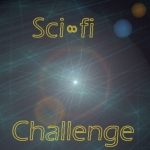
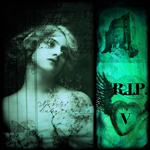
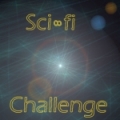
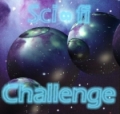
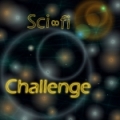
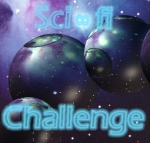 In wrapping up the
In wrapping up the  I write like
I write like


Talk Back